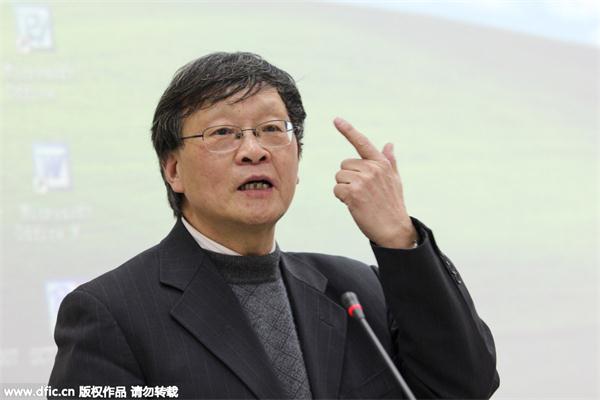 |
|
Historian Xiao Gongqin gives a speech at Shanghai Normal University. [Photo/IC] |
Historian Xiao Gongqin is in the media spotlight again. Like a huge rock dropped into a lake which triggers a series of waves, his remark that militarism does not exist in Japan has been widely questioned and criticized.
Many netizens, perhaps overcome by emotion, have lashed out at Xiao for what he said at a forum sponsored by a Beijing-based newspaper, the Global Times, on Saturday. Some have even questioned his character.
It is not clear whether Xiao's remark has been taken out of context, because the newspaper only published excerpts from the speech he delivered at the forum, and the historian has not yet responded to public criticism.
But going by his remarks on Japan in recent years, such as the one he made in June 2014 claiming the mainstream population of Japan was "pacifist", it seems domestic media outlets have not distorted what he said on Saturday.
Given that political and diplomatic relations between China and Japan remain precarious and public opinion in both countries are far from friendly toward each other, it is somewhat understandable that some Chinese people would react emotionally to experts' observations that appear to explain away Japan's wrongs.
For many people in China, the Japanese government's attempt to "nationalize" the Diaoyu Islands, whitewash or even deny historical facts and force the passage of the controversial security bills through parliament are tantamount to reviving Japanese militarism.
When scholars like Xiao try to say that Japan today does not have the soil for militarism, it is natural for some Chinese to feel offended or even betrayed. In fact, Xiao, as an academic and a professor at Shanghai Normal University, presented his own views on the sensitive issue, which, he said, were based on internationally recognized definition of militarism.
What we need to understand is that the actions of a country's government may not necessarily reflect the choice of its people. In such cases, a government does not represent the sentiments of the country's people.
It is also important to stress that Xiao has repeatedly appealed for calm in both China and Japan so as to build an atmosphere for reconciliation, which is in the best interest of both countries.
As a journalist who regularly warns the public against the Japanese government's not-so-hidden agenda on the revival of militarism, I oppose attacks on Xiao's character and have no problem in accepting his reasoning.
But at the same time, I have to advise the professor that, as a public figure, he should explain himself more clearly so as not to leave any room for speculation and thus preempt undesirable reactions.
For me, the professor's observation is useful, as it differentiates between "militarism" and "militarist tendency", and distinguishes the right-leaning Japanese politicians from the peace-loving Japanese people.
This controversy is still playing out, but it points to the hard truth that public opinion in both China and Japan still remains unfavorable to improving ties between the two countries.
The situation could be pretty much the same if a Japanese professor were to pass a similar remark about China, because major surveys in China and Japan over the past three years have revealed that good neighborly feelings between Chinese and Japanese peoples are at their lowest level.
But as neighbors separated by just a strip of water, China and Japan still need to interact with each other in a meaningful way no matter how big the differences between us. And at the people-to-people level, both need to look at each other clearly.
We can agree or disagree with each other, but there is no need to sensationalize sensitive issues, because that will only further complicate matters, instead of resolving them.
The author is a senior writer with China Daily.
wanghui@chinadaily.com.cn